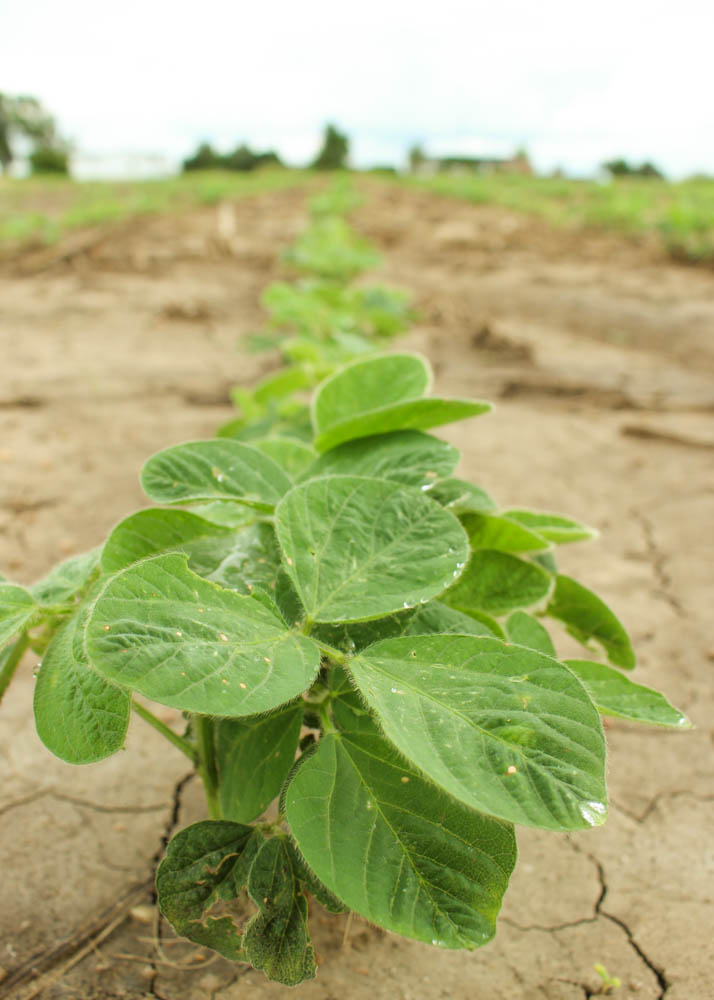Crop Rotation Benefits
Jan 27, 2020

Crop rotation is a practice of growing different crops on the same land in a recurring order. Crop rotation is a great way to build healthy soils, control pests and a variety of other benefits. The challenge of a good crop rotation system is to grow the type and quantity of crops needed to make sure the farm is profitable while continuing to increase soil health for long-term productivity.
Crop rotation increases soil fertility. Planting the same crop continuously year after year can lead to the depletion of nutrients. Since each crop has different nutrient interactions by rotating you help control deficient or excessive nutrients. A lot of soil fertility has to do with the soils organic matter, crop rotation can help increase the organic matter because of the micro organisms left behind by each different crop planted. Also, if you add a grazing rotation to your plan, manure left on your fields can help fertilize the soil. Legume cover crops can play a huge role in crop rotation by providing a substantial amount of Nitrogen needed for a following crop and adding more organic matter. Cover crops and rotation also help with reducing soil erosion. When the soil is always covered by plants it makes it harder for it to be washed or blown away.
Another benefit of crop rotation is that it helps in the control of insects, diseases and weeds. Insects and diseases can build-up when one species or crop is continuously planted. By rotating to a different crop, you can disrupt the insect or diseases life cycle and habitat. Rotating also helps reduce weed pressure by crowding out the weeds and helping keep them from becoming resistant to herbicides. Crop rotations provide a great opportunity to rotate herbicides with different modes of action.
An increase in crop yield is another benefit of crop rotation. Whenever all of the before mentioned benefits come together such as an increase in soil fertility, reduced soil erosion, better control of insects and diseases, and reduced weed pressure it will help increase crop yield along with the possibility of cutting down on some production costs.
If you have questions on crop rotation or the benefits of cover crops, please reach out to one of our Crop Production Specialists with Great Bend Co-op!

Crop rotation increases soil fertility. Planting the same crop continuously year after year can lead to the depletion of nutrients. Since each crop has different nutrient interactions by rotating you help control deficient or excessive nutrients. A lot of soil fertility has to do with the soils organic matter, crop rotation can help increase the organic matter because of the micro organisms left behind by each different crop planted. Also, if you add a grazing rotation to your plan, manure left on your fields can help fertilize the soil. Legume cover crops can play a huge role in crop rotation by providing a substantial amount of Nitrogen needed for a following crop and adding more organic matter. Cover crops and rotation also help with reducing soil erosion. When the soil is always covered by plants it makes it harder for it to be washed or blown away.
Another benefit of crop rotation is that it helps in the control of insects, diseases and weeds. Insects and diseases can build-up when one species or crop is continuously planted. By rotating to a different crop, you can disrupt the insect or diseases life cycle and habitat. Rotating also helps reduce weed pressure by crowding out the weeds and helping keep them from becoming resistant to herbicides. Crop rotations provide a great opportunity to rotate herbicides with different modes of action.
An increase in crop yield is another benefit of crop rotation. Whenever all of the before mentioned benefits come together such as an increase in soil fertility, reduced soil erosion, better control of insects and diseases, and reduced weed pressure it will help increase crop yield along with the possibility of cutting down on some production costs.
If you have questions on crop rotation or the benefits of cover crops, please reach out to one of our Crop Production Specialists with Great Bend Co-op!
